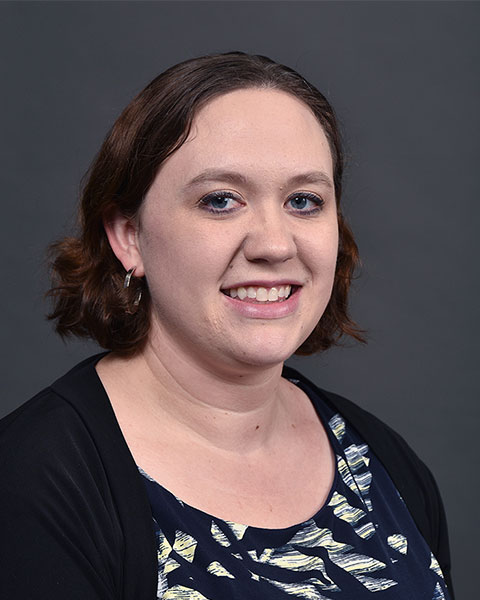Geriatric (G)
PP604 - Patient Perspectives on Falls and Audiology

Robin E. Criter, AuD, PhD (she/her/hers)
Assistant Professor
Western Michigan University
Portage, MichiganFinancial Disclosures: I do not have any relevant financial relationships with anything to disclose.
Non-Financial Disclosures: AAA 2023 Poster Review Committee volunteer reviewer
Ad hoc reviewer for several journals
Lead Presenter(s)
Summary:
Hearing loss is a common concern for the aging adult. While hearing loss presents some obvious challenges, primarily with respect to communication, it also presents a risk for losing one’s balance and sustaining a fall. The annual rate of falls among community-dwelling older adult audiology patients has been documented at 50-68% compared to 28% of community-dwelling older adult non-audiology patients. A growing body of literature seeks to understand the reasons for increased risk of falls among audiology patients and individuals with hearing loss, while also investigating methods for fall risk screenings and assessments. Audiology scopes of practice, clinical practice guidelines, and preferred practice patterns from both the American Academy of Audiology and the American Speech-Language-Hearing Association reference fall risk screening or assessment.
We do not know whether community-dwelling older adult audiology patients recognize hearing loss as a fall risk factor, whether they consider audiologists as having a role in fall-related healthcare, and how they view their own fall history. The primary goal of this research is to clarify how older adults perceive fall risk related to the audiology scope of practice and whether they consider audiologists as having a role in hearing, balance, and fall-related healthcare.
Preliminary analysis of this survey study includes data from 29 community-dwelling audiology patient participants. Average age is 76.3 years (range: 65-87 years). Data collection is ongoing, with completion anticipated by the February 15 deadline.
The majority of participants were seen by an audiologist for hearing-related concerns only (86.2%) and the majority used hearing aids (93.1%). Over half had fallen within the last year (58.6%). 64.3% indicated that they were fearful of falling and 71.4% indicated that falls were an important healthcare concern for them. Participants somewhat or strongly agreed that the following were considered risk factors for falling: hearing loss (35.7%), dizziness (82.1%), and balance problems (92.9%). 50.0% of participants somewhat or strongly agreed that audiologists were healthcare providers who can address falls, fall risk and prevention. 92.9% of participants indicated that they would discuss hearing concerns with their audiologist, 62.1% would discuss dizziness and balance concerns with their audiologist, and 44.8% would discuss falls with their audiologist. Open-ended comments indicated that many participants had not considered the role of hearing healthcare in balance and fall risk.
Fall risk screenings and assessment are included in the audiology scope of practice. In order to effectively practice in these areas, we need an idea of how patients perceive fall risk related to the audiology scope of practice and whether they consider audiologists healthcare providers who can serve them when it comes to hearing, balance, and fall-related concerns. Overall, this preliminary analysis indicates that, while many audiology patient participants fall and are fearful of falling, there is a lack of connection between hearing and falls. Less than half of respondents indicated that they would discuss falls with their audiologist. Patient education may be necessary as we further explore these areas of the audiology scope of practice.
Learning Objectives:
- Upon completion of this session, the participant will be able to identify audiology-related risk factors that patients perceive to be associated with fall risk.
